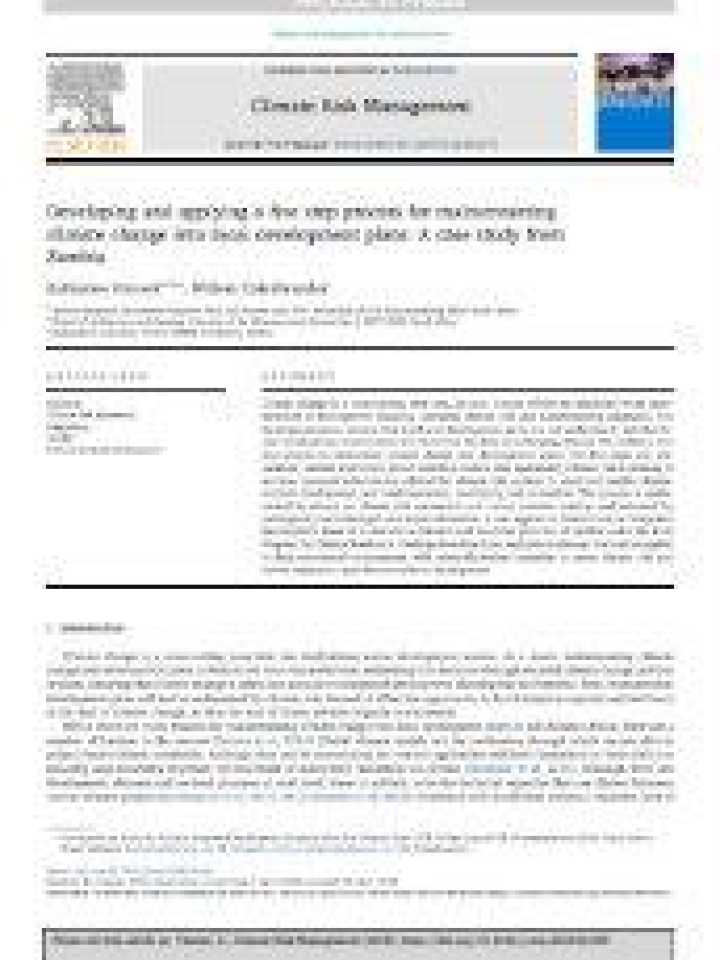Developing and applying a five step process for mainstreaming climate change into local development plans: a case study from Zambia
This study outlines a five step process to mainstream climate change into development plans. The five steps are: preparation; current and future gender-sensitive climate risk assessment; climate risk screening to see how proposed activities are affected by climate risk; options to adapt and enable climate-resilient development; and implementation, monitoring and evaluation.
The process is underpinned by theory on climate risk assessment and robust decision making, and informed by participatory methodologies and expert elicitation. It was applied to District and/or Integrated Development Plans in 6 districts in Western and Southern province of Zambia under the Pilot Program for Climate Resilience. Findings show that it is a useful methodology that can be applied in data-constrained environments with minimally-trained expertise to assess climate risk and enable adaptation and climate-resilient development.
Explore further
